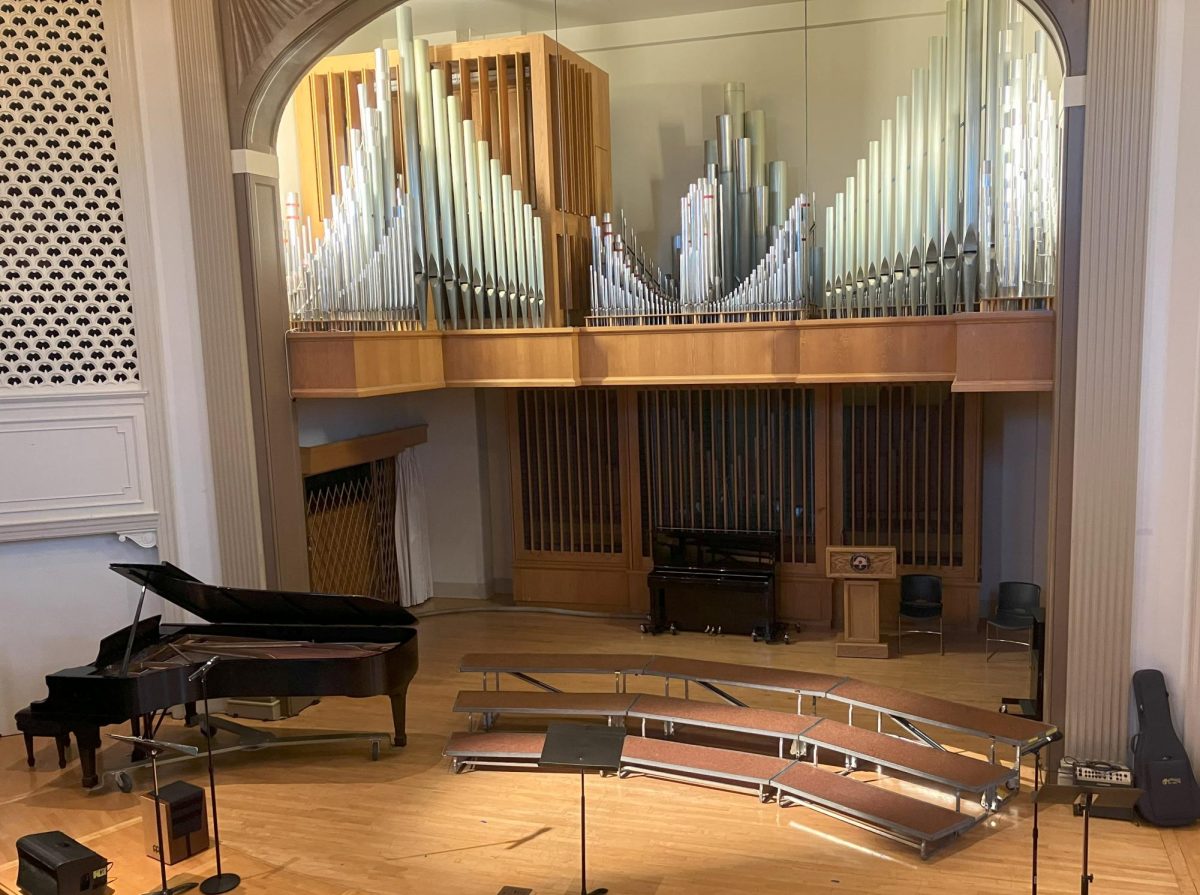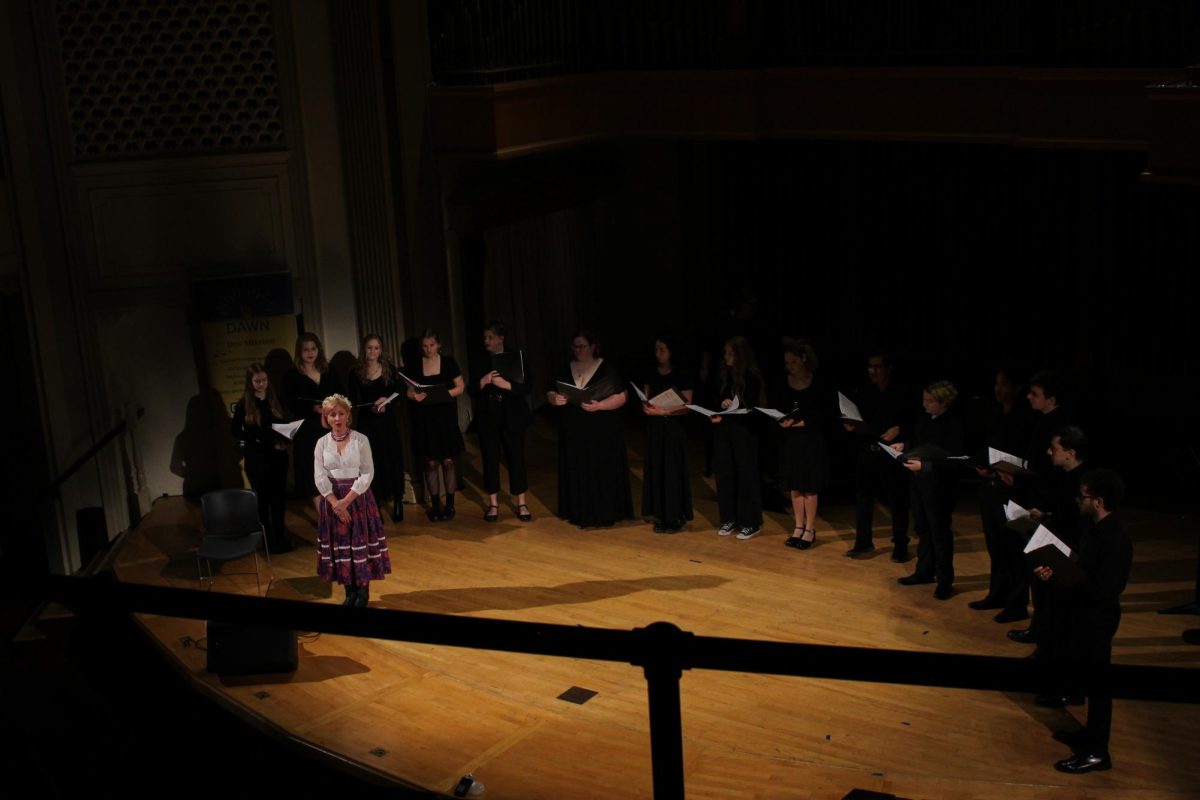The Review sat down with W. Glenn Ford, vice president for finance and administration, to further discuss the 2010-11 budget. Below is an abridged version of the interview.

The Linfield Review: Can you explain the budget process, from when you begin working on it until it is formalized?
W. Glenn Ford: We start working on the budget as early as October. We request that the departments turn in their budget requests for the next fiscal year. Departments submit the request, and we compile those, generally in the controller’s office. We then have a certain balance, and it’s generally out of balance by a fairly significant amount. The next step is for the president and his cabinet to get together. We generally spend at least 20 hours working on the budget to take the beginning point to getting to a balanced budget. Then we present that to the Budget Advisory Committee and the campus community. [The BAC] works on the budget in January. We review the budget, have many hours of discussions and there are recommendations made to the president and to the community. The BAC is advisory, and the president has the option of accepting any changes the BAC has recommended, or he may come back to the BAC and express any concerns he may have with the changes. The president then proposes the budget to the board of trustees during the February meeting. At the February meeting, the trustees review the revenue aspects of the budget, and they review the medical plan aspect of the budget.
TLR: So, is the budget actually approved, then?
Ford: The revenue aspects of the budget are approved. The medical aspects of the expenditure budget are approved. But the balance on the expenditure budget is not approved until later in the year. This year, the full board will review the budget at the May 1 meeting and will approve the budget contingent upon information related to enrollment.
TLR: Where did the exact percentages come from? How does the BAC or the president’s cabinet decide on those specific increases?
Ford: The increases are based on the funding required to provide the core academic mission of the college and all the support services that support it. We look at the cost of our educational programs, and based on that, we develop those recommendations in terms of percent increases.
TLR: So, why are tuition and unfunded financial aid both rising? Why not just leave unfunded financial aid at its current level and leave tuition at its current level or only increase it slightly?
Ford: The tuition
increases and the financial aid increases are not necessarily linked. Tuition is considered on an annual basis based on the rising costs of operating educational services. The significant increase in unfunded financial aid was based more on the difficult economic times.
TLR: So, should we not expect financial aid to increase by that percentage (11.1 percent) again if, say, the economy were to bounce back during the 2011-12 year?
Ford: We look at tuition and financial aid every year in depth, and as we look at the budget, we’ll incorporate all of those factors in. And an 11 percent increase is a larger increase than what I would suggest is a normal increase.
TLR: Overall, all revenues increased about 4.2 percent, but expenses increased only about 4.18 percent. This year, we’re running a $350,000 deficit. Looking at last year’s numbers, though, we also ran a $350,000 deficit. So, the first question is, did we use $350,000 of the enrollment stabilization fund last year to cover that balance?
Ford: Because we are always focused on maintaining academic integrity and quality and minimizing any impact on our students, we decided to allocate that $350,000. It turns out we don’t expect to have to utilize that this year. So, we budgeted to use it, but we don’t expect to. It is budgeted again for next year for the same reason. We didn’t want to cut $350,000 out of the expenditure budget that comes back to support students. That’s why we built up that fund during the last decade. For next year, our hope is that we won’t need to, but we did budget for it to be approved in case we need it.
TLR: What happens to the funds when they aren’t used?
Ford: They stay in the enrollment stabilization reserve fund.
TLR: Back to the original question, then. Explain, with revenue increasing 4.2 percent and expenses increasing only 4.18 percent, why we are running the same budget deficit as last year?
Ford: That is because, in several areas, we increased our overall expenditures. For example, we added some dollars to the personnel budget.
TLR: There was a more than $1 million increase for personnel. That’s a 3.01 percent increase. Out of a budget of $55 million, that’s a good chunk of change going to personnel. What do those costs entail?
Ford: We did not have any across-the-board salary increases in our budget for next year. And we did not have any across-the-board salary increases for this year, either. But, when you look at compensation increases, those include both salaries and benefits. And since we didn’t have across-the-board salary increases for next year, we added $250,000 to the benefits budget, which saw a significant increase in medical costs. We were able to reduce the increase to the medical premium by adding additional dollars to the medical benefits. We also have a “step” system for faculty and staff. So, included in those personnel increases are those “step” increases. (This includes promotion or job description change.) The other thing that is important is that it also includes a significant increase in student employment. About $50,000 was added.
TLR: Is there any way students can add input to this process or maybe come to the meetings? Is there a way for students to get involved with the budget process?
Ford: A good way to get involved to make sure that the students know who the ASLC student representative is on the BAC so that there is an opportunity to provide input via that person. Other possibilities include attending various [budget] meetings that are here on campus. Dominc Baez
Editor-in-chief Dominc Baez can be reached at
[email protected]






